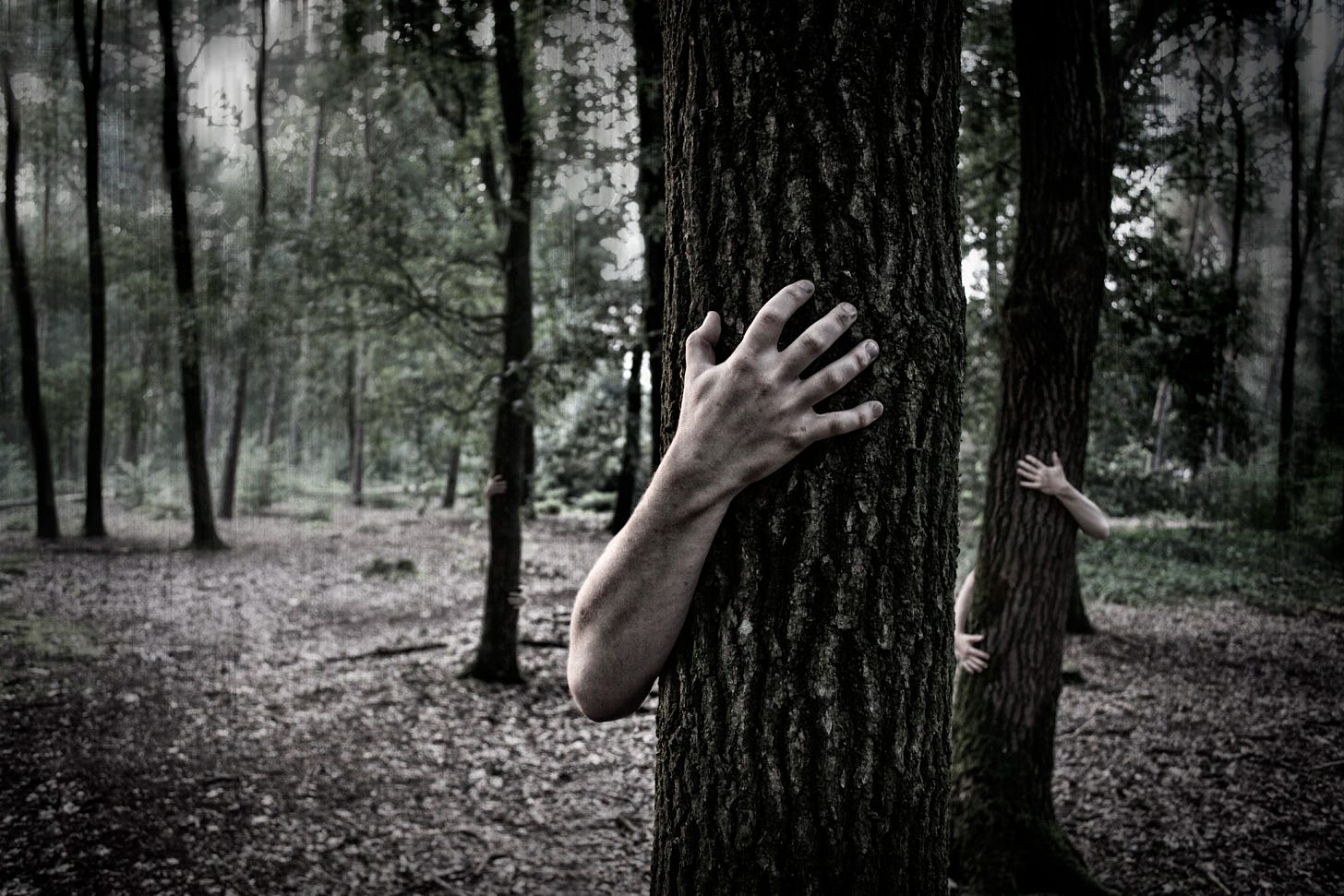
What do zombies mean to you?
I have always been interested in how people decide they must eat each other. The process, the conclusion to burn unsigned sociological, cultural, spiritual contracts.
Zombies eat. They hunger. Do they sleep? Do they dream of possible futures?
In 1845, Lansford Warren Hastings published The Emigrants’ Guide to Oregon and California, mesmerizing the Midwest with a promise of “unexhausted and inexhaustible resources.” It was this kind of guide that inspired so many to pack their wagons and move West.
A “new” land.
What does it mean for a zombie to “turn”?
Most people who have heard of the Donner Party assume rampant violence among one family. Charles Stanton simply chose to stop living. Daniel James Brown writes
Chances are his core body temperature simply dropped gradually below the 90-degree-Fahrenheit threshold at which shivering stops and the final symptoms of hypothermia begin to kick in—amnesia, clumsiness, difficulty speaking, mental confusion. At about 86 degrees, his skin would have begun to turn blue, his respiration and pulse would have slowed, major organs would have begun to fail, and finally his brain would have died.
But Charles Stanton probably died psychologically before he died physiologically. [...] we are able, sometimes, to will ourselves to death, or at least to cease willing ourselves to live.
The two indigenous guides, who stumbled onto the group and volunteered to lead them to safety, were the only people killed for food.
Do zombies signify necropolitics—an orderly churn of bodies, death management run amok?
Two centuries later, we've consumed both the promise and the land. That ravenous hunger persists, though its target has shifted from fertile valleys to the biodiversity that sustains us. We've consumed nearly 70% of birds, fish, reptiles and mammals documented in 1970. According to the United Nations, our collective maw kills off 200 different species every day.
What happens when we recognize ourselves among the walking dead?
Nando Parrado, Uruguayan rugby player and “miracle” survivor of the Andean plane crash, scaled the mountain to look for help. Seeing nothing in all directions, Parrado realized nothing is guaranteed.
Brown: “Death was the rule, life the exception. Life was at best a transitory dream, set in a universe that was entirely indifferent to his fate.”
Are you afraid of endings? Has it already ended?
Our bodies, our languages, our relationships are on, of, and in this world.
About fifty days after rescue teams stopped searching, Parrado’s group decided to take action.
Parrado: “We may be walking to our deaths, but I would rather walk to meet my death than wait for it to come to me.”
I am not afraid of death. I am afraid of dying dreams.
Notes from the Inflection Point explores ways to process and express climate-related emotions like love and fear together. With a voice dedicated to seeing things afresh, again, and with agency, we offer readers grounded reflection on most Thursdays.
Upcoming Event: March 2, 3-5 PST
The Creative Coalition is a Light Hive offering that centers mindful play.
Come dream beyond our current narratives using Ben Robbins’ In This World. You do not need to buy it to play. Beginners to both meditation and gameplay, as well as dead or undead, are welcome.
Together, we’ll start with what we know, explore differences, create new worlds, and reflect on what these possibilities and processes mean to us.
Pay what you can!
25% off code = Hive25
50% off code = Hive50
75% off code = Hive75
No one is turned away for lack of funds. If the registration fee is cost-prohibitive, please ask for the link via email or DM.
Bio
Logan Juliano, PhD (they/them) is a queer, transracial adoptee, and everyperson at Light Hive, a newsletter that shows how Buddhist frameworks and play can help navigate identity and the polycrisis. They hold a PhD in Performance Studies, teach at the University of California, Los Angeles, and love the resistance game Maquis.


